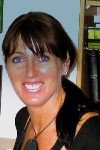
I took some time out today to catch up on some blog reading and found myself focusing on assessment,
new models of assessment!
I would agree that there remains an assumption that 21st century skills are extremely difficult to fairly or reliably measure.
The ability to reliably measure 21st c skills must however depend heavily on the tool that is used for the assessment.
It was fun to discover some of the new tools that are emerging. Tools that measure both basic skills and more advanced skills. The common feature of such tools was not merely whether a student possesses a particular piece of knowledge but whether they can use this knowledge to solve problems.
Check out some of the tools/strategies:****A leader in this field seems to be
Council for Aid to Education (CAE) They have formulated a range of formative tools aimed at measuring a student’s ability to apply 21st century skills.
Tasks include:
Make an argument- Take and justify a position on an issue
Critique an argument- evaluate an argument for how well reasoned it is
Performance Task- complete a task using a set of provided material This
brochure provides a great outline of their work.
****
PLC Sydney is trialling student use of mobile devices in exams. Imagine the impact that this will have on the questions that are asked and thus the thinking required!!
“Students will be able to use iPods, the Internet and mobile phones during exams”.****Another interesting assessment tool for middle school science students is
River City. River City uses a video game interface to present its students with a problem and asks them to develop a hypothesis and procedure, test it—virtually—and then describe their findings.
**** The
rubrics developed by Pam Hook and Julie Mills re SOLO and the key competencies are well worth a look.
All this reading strengthening my commitment to the work of
Jay McTighe and Grant Wiggins particularly because of their explicit focus on the authentic assessment of rich tasks. The first stage on the
‘Understanding by Design’ template focuses on desired results and questions that will lead to understanding. Performance tasks are also a key component of assessment evidence. Their book
'Understanding by Design: Professional Development Workbook' is a worthwhile resource.
What other tools/strategies exist for measuring deeper outcomes???
I envisage some innovative developments as schools continue their journey with the New Zealand Curriculum.













